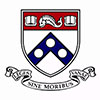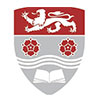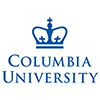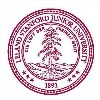英国弗朗西斯•克里克研究所博士后职位—蛋白质生物化学方向
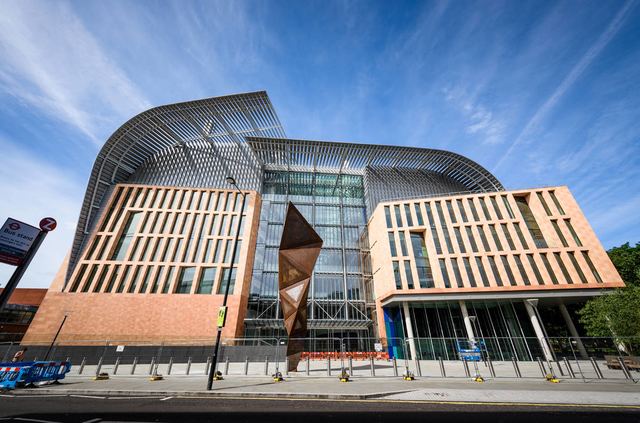
英国弗朗西斯•克里克研究所博士后职位—蛋白质生物化学方向
Francis Crick Institute
Postdoctoral Training Fellow – H Yardimci lab
Reporting to: Hasan Yardimci, Senior Group Leader
Contact term: This is a full-time, fixed term 4 years position on Crick terms and conditions of employment.
The Research Group
Our laboratory investigates processes involved in eukaryotic DNA replication and genome maintenance using conventional biochemistry and single-molecule visualization tools. To study eukaryotic replication, we use a number of model systems including Xenopus egg extracts and a reconstituted system with purified proteins. The group currently consists of around 6 researchers including PhD students, postdocs and laboratory research scientists. For more information see the laboratory website.
The Project
We are interested in elucidating how the eukaryotic replisome navigates through the protein-rich chromatin environment. To this end, we are using single-molecule imaging techniques to visualise the outcome of replication fork collision with natural protein barriers including nucleosomes, pre-replication complexes and cohesin complexes. By direct visualisation of replisome progression through nucleosomal DNA templates in frog egg extracts, we have previously shown that efficiency of parental histone recycling is altered by free histone concentration (Gruszka et al, 2019. Sci Adv). The current project is focused on elucidating how different replisome components and histone chaperones facilitate transfer of parental histones onto newly replicated DNA.
Postdoctoral Training Fellows will lead their own projects, contribute to other projects on a collaborative basis (both in the lab and with external collaborators) and may guide PhD students in their research. The ability to work in a team is essential.
Informal enquiries are welcome, and should be directed to Hasan Yardimci (Hasan.Yardimci@crick.ac.uk).
Key experience and competencies
The post holder should embody and demonstrate our core Crick values: bold, imaginative, open, dynamic and collegial, in addition to the following:
Essential
PhD (including but not limited biochemistry and biophysics) or in the final stages of PhD submission
Strong interest in chromosome duplication
Track record of writing papers as evidenced by publications or submitted manuscripts in referred journals
Evidence of data presentation at scientific meetings
Excellent organisational and communication skills
Ability to work independently and also capable of interacting within a group
Desirable
Experience in protein biochemistry
Experience in working with nucleic acid processing enzymes
Experience in single-molecule methods including TIRF microscopy
About Us
At the Crick, we conduct research at the forefront of biomedical research. We combine rigour with an open and collaborative culture, and are outward-looking, reflecting our status as a partnership of six organisations aiming to pool knowledge, ideas and resources.
We have a wide research portfolio with no divisions or departments, bringing biomedical researchers together with clinicians, physical scientists and applied scientists from our pharmaceutical partners.
We aim to attract the most talented researchers and support them to tackle innovative research questions. Our science technology platforms provide our researchers with access to state-of-the-art technology and expertise.
We provide an excellent learning environment with dedicated education programmes in public engagement with science, education and personal development, and a postdoc training programme that prepares scientists for leadership roles in science.
If you are interested in applying for this role, please apply via our website.
The closing date for applications is [date] at 23:59
All offers of employment are subject to successful security screening and continuous eligibility to work in the United Kingdom.
If you require a visa to work in the UK we will help support your application should you be successful
Find out what benefits the Crick has to offer:
For more information on our great pay and benefits package please click here: https://www.crick.ac.uk/careers-and-study/life-at-the-crick/pay-and-benefits
Equality, Diversity & Inclusion:
We welcome applications from all backgrounds. We are committed to providing equal employment opportunities, regardless of ethnicity, nationality, gender, sexual orientation, gender identity, religion, pregnancy, age, disability, or civil partnership, marital or family status. We particularly welcome applications from people who are Minority Ethnic as they are currently underrepresented in the Crick at this level.
Diversity is essential to excellence in scientific endeavour. It increases breadth and perspective, leading to more innovation and creativity. We want the Crick to be a place where everyone feels valued and where diversity is celebrated and seen as part of the foundation for our Institute’s success.
The Crick is committed to creating equality of opportunity and promoting diversity and inclusivity. We all share in the responsibility to actively promote dignity, respect, inclusivity and equal treatment and it is our aim to ensure that these principles are reflected and implemented in all strategies, policies and practices.
Read more on our website: https://www.crick.ac.uk/careers-and-study/life-at-the-crick/equality-diversity-and-inclusion
About Us
Logo
The Francis Crick Institute is a biomedical discovery institute researching the biology underlying human health.
At the Crick, scientists and staff collaborate to stretch the very limits of what we know about how life works. Our work is helping to understand why disease develops and to translate discoveries into new ways to prevent, diagnose and treat illnesses such as cancer, heart disease, stroke, infections and neurodegenerative diseases.
The Francis Crick Institute is a charity, founded by the Medical Research Council, Cancer Research UK, Wellcome, UCL (University College London), Imperial College London and King’s College London.
Read More
Follow Us







